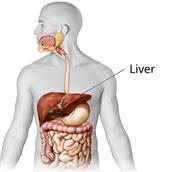Hepatitis B: What to Know

Hepatitis B is a liver infection that's caused by a germ, also called a virus. The germ can spread from person to person. This means it's contagious.
The infection causes irritation and swelling in the liver. There are two kinds of hepatitis B:
Acute hepatitis B. This may last for 6 months or less.
Long-term, or chronic, hepatitis B. This lasts for more than 6 months. It can lead to serious liver problems.
Most adults with acute hepatitis B don't get chronic hepatitis B. Babies and young children who get hepatitis B are more likely to develop chronic hepatitis B than adults.
What are the causes?
This condition is caused by a germ. The germ spreads through contact with blood or other body fluids such as:
Semen.
Vaginal fluids.
Breast milk.
The germ doesn't spread when a person coughs or sneezes.
What increases the risk?
- Having contact with needles or syringes that have the germ on them. This may happen when:
-
Not using a condom during vaginal, anal, or oral sex.
-
Living with or having close contact with a person who has hepatitis B.
-
Working in a job where you have contact with blood or body fluids, such as in health care.
-
Traveling to a country where this condition is common.
-
Getting kidney dialysis. This is treatment to clean your blood.
-
Having been given donated blood (blood transfusion) or an organ transplant.
What are the signs or symptoms?
-
Not wanting to eat as much as normal.
-
A fever.
-
Feeling tired.
-
Throwing up or feeling like you may throw up.
-
Belly pain or joint pain.
-
Dark yellow pee (urine), light-colored poop, or both.
-
Jaundice. This is when your skin or the white parts of your eyes turn yellow.
-
Itchy skin.
Often, there are no symptoms.
How is this diagnosed?
This condition is diagnosed based on:
A physical exam.
Your medical history.
Blood tests.
How is this treated?
Treatment may depend on your condition and whether you have liver damage. It may include taking antiviral medicine. This may help:
You'll need to avoid taking certain medicines that can lead to liver damage.
Follow these instructions at home:
Medicines
-
Take medicines only as told.
-
If you were given an antiviral medicine, take it as told. Do not stop taking it even if you start to feel better.
-
Do not take:
Activity
-
Rest as needed.
-
Use a condom every time you have vaginal, oral, or anal sex.
-
Ask what things are safe for you to do at home. Ask when you can go back to work or school.
-
Avoid swimming and using hot tubs until your provider says this is OK.
Eating and drinking
General instructions
-
Do not share toothbrushes, nail clippers, or razors.
- Wash your hands often with soap and water for at least 20 seconds. If you can't use soap and water, use alcohol-based hand sanitizer. Make sure you wash your hands:
After you use the bathroom.
After you change diapers.
Before you touch food or water.
-
Tell your provider about people you live with or have close contact with. They may need the hepatitis B shot (vaccine).
-
Cover any cuts or open sores on your skin. This helps keep you from spreading the germ.
-
Keep all follow-up visits. You may need to have tests to make sure your liver is healing.
To learn more, go to these websites:
- Centers for Disease Control and Prevention at cdc.gov. Then:
Click "Search" and type "hepatitis B."
Find the link you need.
Contact a health care provider if:
-
Your symptoms get worse.
-
You have new symptoms.
This information is not intended to replace advice given to you by your health care provider. Make sure you discuss any questions you have with your health care provider.
